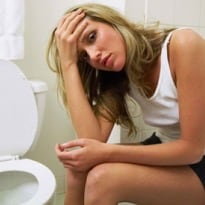If you swear by a hair of the dog, bananas, green tea or aspirin, you are deluding yourself. The best cure is 24 hours curled up under the duvet.
In case you have never had a hangover - and a study from Boston University found that 25-30% of people may be resistant to them - the classic symptoms include a pounding headache, nausea, exhaustion, thirst and dizziness. If it is particularly bad, you will be sweaty, your hands will shake and your pulse will race.
Hangovers usually start within a few hours of stopping drinking (which is not a reason to continue drinking as alcohol poisoning is more dangerous than a hangover). Alcohol's social lubrication comes at a cost. It dehydrates you and increases the amount of urine produced: four drinks will make you produce up to a litre of urine over several hours. It can irritate the stomach and make it produce more acid, which can cause pain or give you heartburn.
Alcohol also disrupts your circadian rhythms, so although you may fall asleep quickly, you will wake up sooner than normal and feel somewhat jetlagged. It can reduce your blood sugar levels and make you feel hungry and sick.
There are more cures touted for hangovers than there are alcoholic drinks to give you one in the first place. However, according to a systematic review published in the BMJ, which considered the results of all existing studies, there is no evidence to show that any of them work. But since this won't stop you trying, what are the best ones to opt for?
The solution
Many alcoholic drinks contain byproducts of fermentation, known as congeners, which are added for taste and appearance, or produced naturally during the production process. Drinks that are mostly ethanol, such as gin and vodka, give fewer hangovers (but not none) than those full of congeners, such as red wine or whisky.
Interspersing non-alcoholic drinks with alcoholic ones and drinking lots of water after boozing may reduce hangovers, as may eating dry toast to reverse the drop in blood sugar. Sleeping off a hangover can help, along with taking antacids if your stomach is painful. Paracetamol is not the best hangover treatment as it is metabolised by the liver, which will have suffered enough. Aspirin will further irritate your stomach so avoid it too.
Everyone will have a method they swear by, but there is no evidence to suggest the hair of the dog, bananas, effervescent drink tablets (containing vitamin B complex and vitamin C), green tea, cabbage, exercise, eggs, fresh air, ginseng and a lot of other hangover cures actually work. But if you drink more than is healthy, don't feel too bad about it. There is some research that says feeling guilty increases the likelihood of a hangover.
Since there is no cure, the best bet is prevention. If that doesn't stop you, time is the best healer. In eight to 24 hours, you'll feel well again.
When it comes to a hangover, time is the best cure. Photograph: Radius Images/Alamy









